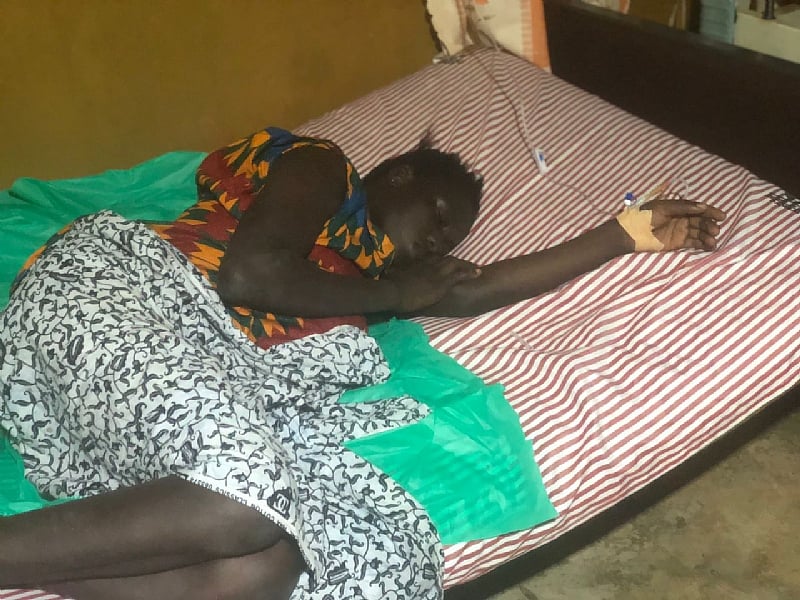The quiet town of Dambai in Ghana’s Oti Region was shaken by a disturbing incident involving a 21-year-old hairdresser apprentice, Madam Paulina Linaju, who unexpectedly gave birth to a baby boy in a private toilet. The details of the incident, as pieced together from various sources, paint a picture of confusion and tragedy. Mr. Oboaba Yakubu, the Assembly Member for Dambai Old Town, was alerted to the situation during a live radio broadcast when the landlord of the toilet facility called in distress. The landlord reported that his son had discovered a crying baby in the latrine shortly after Madam Linaju had used the facility and left. Mr. Yakubu immediately rushed to the scene, accompanied by a police officer. Upon their arrival, they discovered the tragic reality – the baby was deceased within the pit latrine.
Following the grim discovery, the police officer retrieved the infant’s remains from the latrine. The family members of Madam Linaju, the suspected mother, subsequently made arrangements for a proper burial. The incident immediately raised questions and concerns about the circumstances surrounding the birth and the subsequent death of the infant. While the community grappled with the shock of the event, conflicting information emerged regarding the official reporting of the incident. Assistant Superintendent of Police (ASP) Mr. Al-hassan Abdul-Razak, the Divisional Crime Officer at Dambai Police Command, stated that he had not received any formal report of the incident.
This discrepancy in information added another layer of complexity to the unfolding narrative. ASP Abdul-Razak did acknowledge, however, that he had heard about the incident through informal channels. His information suggested the involvement of a police officer who happened to be passing by the scene and was alerted to the situation by the local Assemblyman. This information further muddied the waters, raising questions about the initial response and reporting protocols. The lack of a formal report despite the presence of a police officer at the scene raised concerns about potential procedural lapses.
The absence of a direct account from Madam Linaju herself further compounded the mystery. Attempts to communicate with her proved unsuccessful, leaving a significant gap in the understanding of the events leading up to the tragic discovery. Her current condition, as reported, is being monitored by both police personnel and medical staff at a local hospital. The reasons behind her silence, whether due to medical reasons, emotional trauma, or other factors, remain unknown, adding to the speculation surrounding the incident. Determining the sequence of events and establishing a clear narrative is hampered by this lack of firsthand information.
The situation highlights the challenges in gathering accurate and complete information in the aftermath of a traumatic event, particularly in a smaller community. The conflicting reports from the Assembly Member and the Divisional Crime Officer underscores the importance of clear communication and established reporting procedures, especially in cases involving vulnerable individuals. The absence of a statement from Madam Linaju, coupled with the conflicting official accounts, hinders a comprehensive understanding of what transpired. The incident leaves a number of unanswered questions, including the circumstances leading to the birth in the toilet, the cause of the infant’s death, and the reasons behind the apparent discrepancies in the official reporting of the incident.
The incident serves as a stark reminder of the need for accessible maternal healthcare services and support systems for young mothers. It also emphasizes the importance of thorough investigations into such events to ensure clarity, accountability, and appropriate support for those involved. The situation in Dambai underscores the need for effective communication and reporting protocols within law enforcement agencies to ensure timely and accurate responses to sensitive incidents. Furthermore, the incident highlights the challenges faced by young women, particularly those in vulnerable situations, in accessing adequate healthcare and support systems. As the investigation unfolds, it is crucial to prioritize the well-being of Madam Linaju and provide her with the necessary medical and emotional support during this difficult time.














